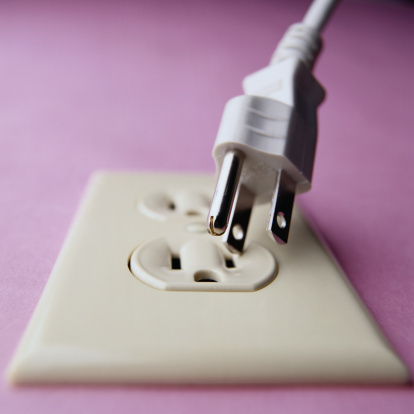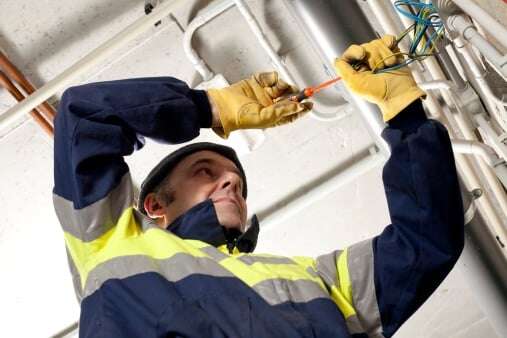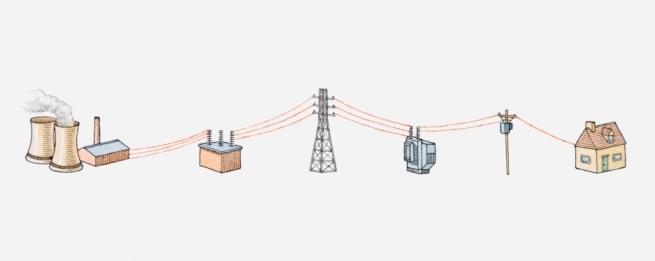 Electricity makes a long journey between the time it is produced at power plants and the current is sent through transformers.
Electricity makes a long journey between the time it is produced at power plants and the current is sent through transformers.
From the transformers, the charge travels through transmission lines, arrives at a substation and goes to local distribution lines before pole-top transformers reduce the voltage so that it is safe for household use. Only then does the charge arrive at your home, where it passes through a meter and then flows to the electrical panel. From there, electricity flows through the wires in your home, fed through outlets and light switches.
The electrical panel is often referred to as the “brain” of your home's electrical system – and for good reason. The panel is “smart” enough to know when the interior wires get overloaded and/or are in danger of overheating and causing a fire, which is why they “trip,” or automatically turn off. (This is when you must run to your utility room or garage and reset the breaker, first by moving it to the “off” position and then to the “on” position).
Clearly, the “brain” is loaded with a lot of responsibility; namely, it keeps you, your family and your home safe from electrical fires as it provides power to your home.
How do you know when it might be time to have your electrical panel upgraded by a licensed local electrician?
- Your home relies on fuses and a fuse panel instead of circuit breakers and an electrical panel. Keep in mind that while there is nothing wrong with fuses, per se, they are outdated – common in homes built before 1960 and well before Americans in general became so dependent on appliances, TVs, computers and other electronics. In the worst cases, however, some fuses pose a fire hazard; in fact, some insurance companies will not extend coverage to a home that relies on fuses. While fuses burn out and need to be replaced, circuit breakers simply need to be reset.
- Old or faulty wiring, which becomes evident when lights dim or flicker, you experience a shock or tingling feeling when you touch an appliance, you detect a burning smell near electronics or appliances or you notice discolored power outlets around your home.
- A remodeling or substantial home upgrade is on your horizon. In this case, you may need an electrical panel to supply more than the standard 100 or 150 amps of power to your home; you might need 200 or 400 amps. Likewise, the addition of a major new appliance might overburden your current electrical panel. By “major,” think in terms of a new refrigerator, air conditioner or hot tub – not a toaster oven or coffee maker.
- You are overly dependent on power strips and extension cords and/or you don't have enough outlets in your home to suit your needs. Better to upgrade your electrical panel – and also have more outlets installed – to supply the power you need. You'll reduce the inherent fire hazard posed by extension cords at the same time.
- Your electrical panel is “acting out,” either by tripping often or by making crackling sounds. Your major appliances might be “acting out,” too, usually by refusing to run at full power.
At this point, it's a good idea to call Experts In Your Home to assess the condition of your home's electrical panel and whether it can safely support the electrical demand that your family places on it every day. If this is the case, don't hesitate to call a local electrician in Chico for an inspection – for your family's safety and for your peace of mind, too.
Which jobs should you leave to the pros every time? Find out by downloading the FREE guide below:








